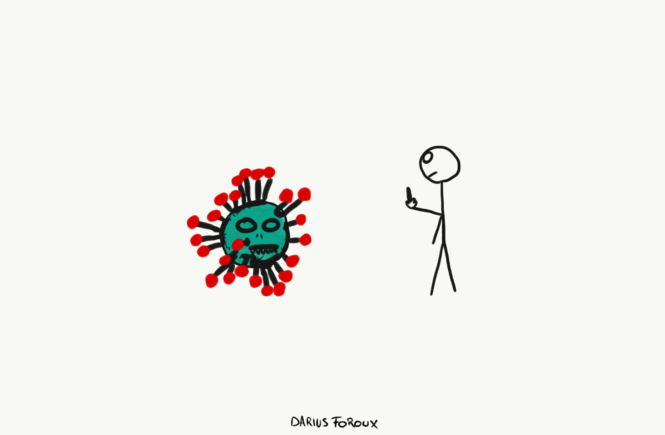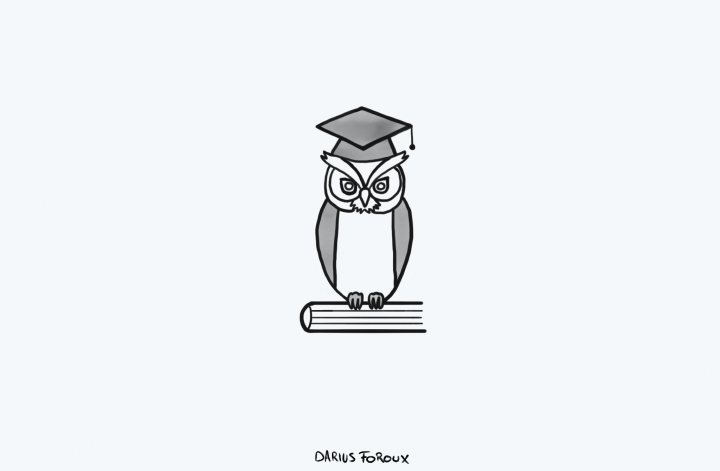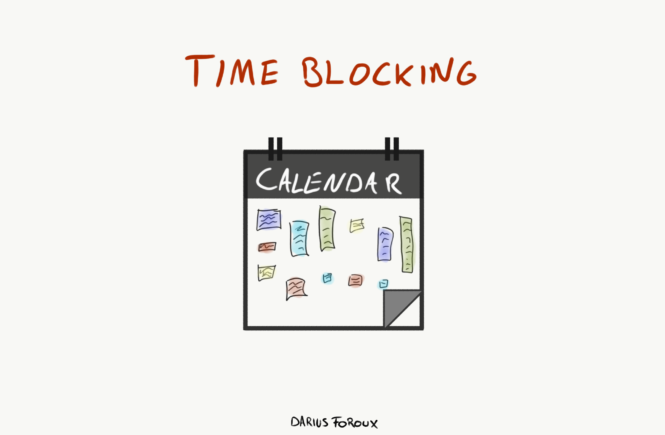Fear is a complex emotion. It can help us or hurt us. I usually write about the latter effect.
Most of us live with unnecessary fear and worry about the future or past. We tend to overthink and allow fear to paralyze us. As a result, we become angry, sad, depressed, and miss the present moment.
But fear is also useful. In this article, I share how I deal with the fear of COVID-19, or what everyone calls the coronavirus. Let’s start with a question that’s been on people’s minds for the past weeks.
”Should I worry about the coronavirus?”
If that’s not clear by now, the answer is yes. The WHO even declared it a pandemic. People who say they are not worried are either lying or lack self-awareness. Why? First of all, it’s clear that this virus is not like a harmless cold. Most people who write about it do it from a medical or political point of view. I’m not an expert. But just like you, I’m impacted by the coronavirus.
What I know is that it’s a threat. If it wasn’t, leaders all over the world weren’t reacting this way. Italy locked down the whole country, the US banned European travelers, the NBA is suspended, and so forth. Daily life is essentially coming to a halt.
No one wants that. And yet, it happened. Why? Because experts don’t know the real threat of the coronavirus. The future will tell, but it seems like the leaders are making the right decisions.
When I hear non-experts saying things like “It’s just like the flu” and “I’m not afraid of getting a cold”, I feel like punching them in the face. To those selfish assholes I say: Your immune system might handle the coronavirus, but millions of people with weak immune systems might not survive.
In fact, I said that to one of my acquaintances last week. He was offended because I called him out. The truth is: People who are not worried about COVID-19 lack emotional intelligence. These are not people I want as friends or co-workers. Today, the same guy came back to me and said he’s concerned right now.
Fear makes you alert
The fear that this coronavirus causes is in all of our best interests. By now, every leader in the world is taking precautions. People are asked to work from home even if they feel good. And most governments are urging people to stay at home when they feel ill.
The whole world is alert. That’s a good sign. We need to be worried right now.
And that’s exactly why I’m NOT worried long-term. If the majority of the world would act like those ignorant assholes, I would probably start building a bunker in my backyard.
But I’m not a doomsday thinker. Sure, I’m buying food and supplies in bulk, but that’s what I always do. I never understood why people went to the supermarket multiple times a week. But I’m not excessively stockpiling.
I’m also limiting contact with other people as much as I can. And my family is doing the same. We have a laundry technology company. We’ve asked our team to work from home.
We meet with our clients via video calls. But our technicians need to do work at laundries sometimes. In those cases, we ask our clients to clear the place they need to work so we limit contact with other individuals.
It’s not a big deal. We’re only taking precautionary measures—we’re not putting everything on hold. And for most companies in the world, it’s the same. People need to stop overreacting to these precautions.
“Sitting at home sucks!” Don’t be a baby. It’s just temporarily less social contact. So what? Get your work done from home. If that’s not possible, make the best of it: Catch up on your reading list, take online courses, do push-ups, watch some movies from the IMDB’s top 100 list. That’s easy.
My respect goes out to people who work in health care today. The people who are at the frontlines. That’s hard work. Those folks are heroes.
The cycle repeats itself
When something bad happens to humans, our first response is always fear. That’s the tool evolution gave us to survive. Without fear, we would all be dead. When we’re afraid, we start working on solutions. We have the urge to survive.
We become alert, we think about ways to make things better. We all have loved ones. We don’t want people to die. Eventually, we take measures that will succeed.
If we weren’t worried, things would get a lot worse. But still, things will not get better magically by themselves.
Things will be bad, we will get scared, we will make adjustments, and eventually, we will recover. That’s what has happened time and time again. Always know where we are in the cycle.
We’re now in the “getting scared” phase. There’s nothing wrong with that. In fact, without fear, not a single human would be still alive.
So thankfully, we’re getting afraid. That’s a sign that things will get better.




